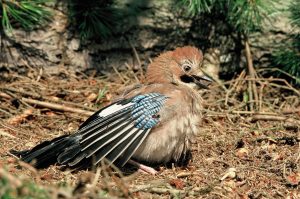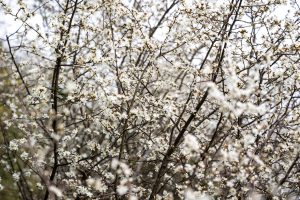Peak time for your garden birds
It’s peak time for your garden birds
It won’t need us to tell you that right now there’s a lot going on with garden birds. Some adults are still on the nest, others are feeding fledglings hidden away in undergrowth and shrubs, and others, like Blackbirds, may already be on their second brood. And because the last winter was relatively mild and therefore more adult birds made it through to the spring, breeding pair numbers are generally looking very good across the country.
So what’s it important to do from your side to further help the breeding success of your garden birds? There are two key things…
Very regular changes of fresh water
This week we heard about the very sad tale of a local outbreak of trichomoniasis which was killing Greenfinches, Chaffinches and Siskins, and, along the way, the adult birds were passing the fatal condition to their fledglings. Trichomoniasis is a single celled parasite which causes lesions in the bird’s throat, eventually blocking it, and therefore preventing the bird from swallowing food. The parasite cannot live long outside of a host but is often spread by contaminated water in bird baths where the parasite can briefly live having been transferred there from an infected bird’s saliva.
So very regular changes to the water will certainly help prevent an outbreak – i.e. change the water several times per day as a minimum. However, if you do get an outbreak of trichomoniasis in your garden and see infected birds – puffed-up feathers, lethargy, food and saliva around the bill – then it’s actually better to empty the bird bath and leave it dry. This might seem an extreme measure in warm weather when birds need liquids, but it will then encourage them to disperse and drink from a greater number of sources – therefore reducing the risk.
Live foods
Well it wouldn’t be a blog post from us if we didn’t mention live foods at this time of year! So yet another reminder that the very best food you can be putting out right now is live mealworms. And actually this is related to the trichomoniasis problem, because, and unlike foods such as seeds, seed mixes and suet products, live mealworms are full of moisture and therefore it’s logical that birds will have less need to come to bird baths to drink.


